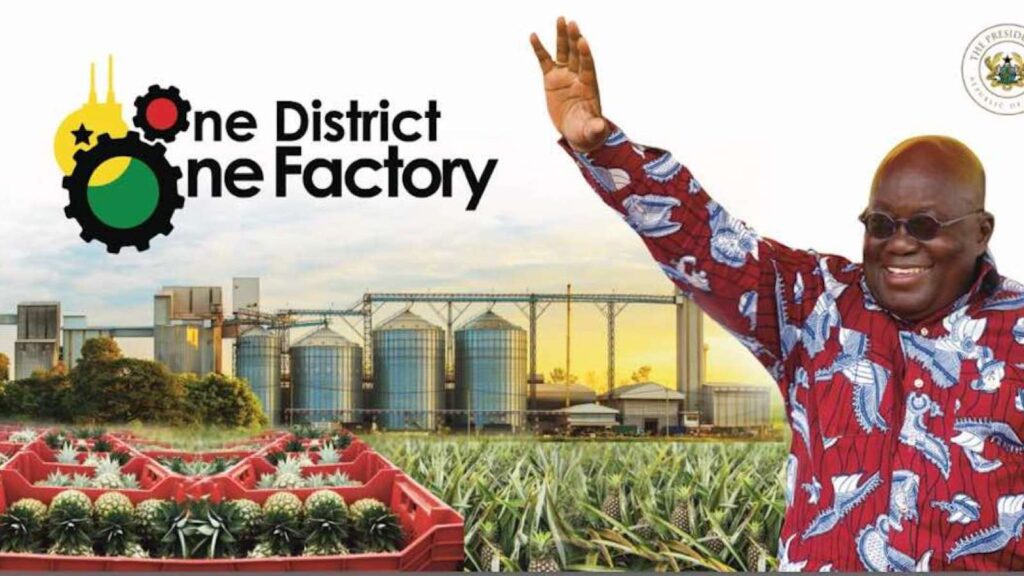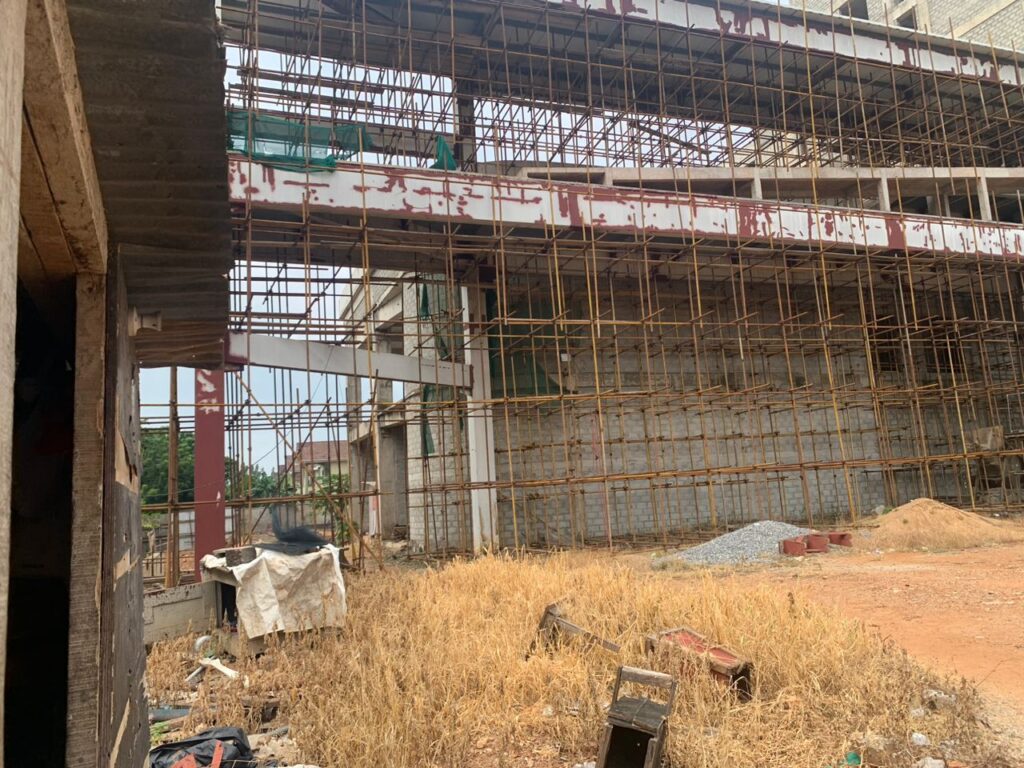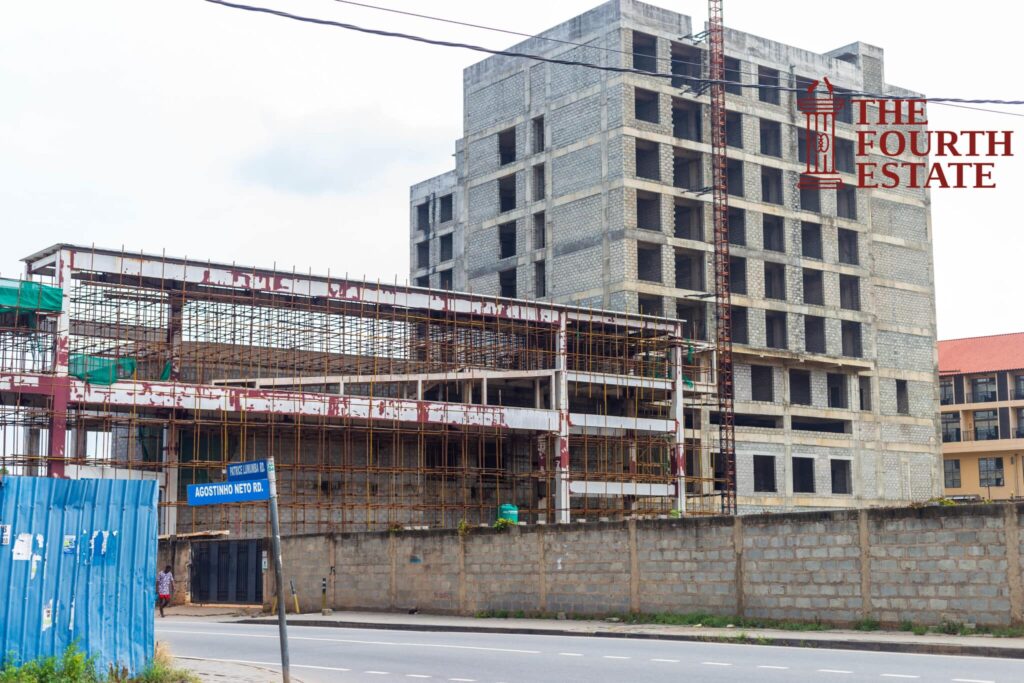In the Airport Residential Area, construction of a large hotel edifice has seemingly halted since its conception in 2019.
The building is meant to be Ghana’s next luxury Le Méridien, a 160-room hotel project. Construction started in 2019 and was expected to be completed in 2025.
However, the building remains unfinished with construction activity seemingly nonexistent.
In 2022, the project sparked controversy after a report by The Fourth Estate, a Ghanaian investigative news entity, detailed how parliament granted nearly $4 million in tax exemptions to the firm behind the construction.
1D1F Promise
Launched in 2017, 1D1F was designed to spur industrialization across Ghana by supporting one factory in each of the country’s 261 districts.
Beneficiaries could receive tax breaks, low-interest loans, or infrastructure support.
The Le Méridien hotel project appeared to stretch that definition.
The Airport enclave hardly fits the description of a district in need of development. The affluent area houses multiple brand-name hotels, corporate offices, and shopping centers.

4-Mac Limited, the company behind the hotel’s construction, stated that the project was a “strategic investment” that could create jobs and boost hospitality revenues.
Parliament approved the waiver in December 2022 after a Finance Committee report endorsed it as a 1D1F-aligned project.
The tax waiver was intended to cover import bills and other import-related taxes of the company. Additionally, the company received a five-year tax holiday.
Digging Deeper
Why was a five-star hotel in central Accra listed under a program meant for factories and agro-processing plants in rural Ghana?
That was the thesis when The Fourth Estate began its investigations. The team searched the Office of Registered Companies (ORC) database, but the company didn’t exist.
Officials later confirmed publicly that “a search … did not show the trace of companies — Le Méridien Hotel and 4-Mac Limited.”
Critics argued that Parliament had been misled; that the exemption was approved for a company with no verifiable legal registration.

Shadowy Ownership
A rejoinder circulated months later named Jeffery Kwaku Amponsah as the sole owner of 4-Mac Limited, with Vida Amankwaa listed as a director.
But the absence of any ORC file or beneficial-ownership record makes that claim impossible to verify.
Other reports mention Prince Kwame Damptey of Pridam Investments as a promoter involved in the Le Méridien project, but again, no formal filings connect these names to 4-Mac.
According to a post by notable activist Bright Simons, the founder and owner of 4 Mac, also owns Byes and Ways in Kumasi, and reported that both companies have conflicted with Ghana’s Auditor General.
Mr Simons wrote that in 2016, the Auditor General could not find evidence by way of documentation, like waybills and invoices, to support liabilities purportedly owed to 4 Mac to the tune of 21.7 million GHS (local Ghanaian currency units) in connection with a 50.24 million GHS (~$13 million then) contract.
This revelation added fuel to the controversy and questioned Parliament’s due diligence.
Official Denials, Lingering doubts
The Ministry of Trade and Industry insisted that the hotel’s inclusion under 1D1F was a “clerical error,” saying it actually qualified as a Ghana Investment Promotion Centre (GIPC) strategic project, not an industrial factory.
That explanation did little to calm critics.
Transparency advocates point out that both programs — 1D1F and GIPC strategic projects — grant significant fiscal benefits, yet neither requires parliamentary disclosure of company ownership before approval.
Unfinished Concrete Monument
As of late 2025, the Le Méridien structure stands incomplete — a concrete frame covered in scaffolding, silent testimony to a program that promised factories and jobs, but instead raised new doubts about transparency and governance.

The mystery of 4-Mac Limited remains unresolved. Its registered office cannot be located.
Whether it will be completed in the future remains a mystery. For now, it seems to be another example of poor due diligence and misuse of government resources.





